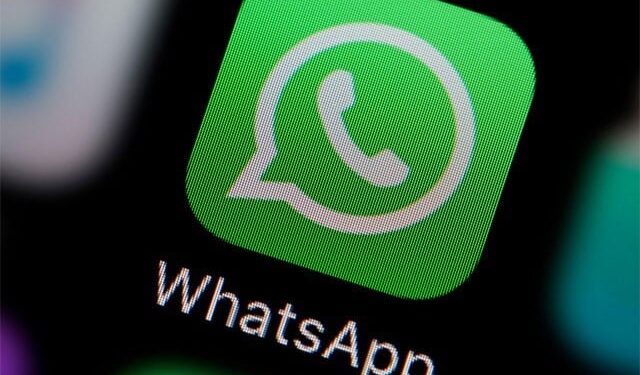WhatsApp Set to Become Default Messaging App for iPhone Users
WhatsApp, the widely popular messaging platform owned by Meta, is currently testing a significant update that will allow iPhone users to set it as their default messaging and calling app. This development follows Apple’s iOS 18.2 update, which introduced the ability for users to select third-party apps as their default communication tools. If implemented successfully, this feature will give iPhone users greater flexibility in choosing their preferred communication platform.
The Evolution of Default App Selection on iPhones
Historically, Apple has maintained strict control over the default apps used for core functionalities such as messaging, calling, and web browsing. For years, iPhone users were restricted to using Apple’s native apps—Messages for texting and Phone for calls—without an option to replace them with third-party alternatives. However, with the introduction of iOS 14 in 2020, Apple took the first step towards greater app flexibility by allowing users to change their default web browser and email app.
Building upon this framework, iOS 18.2 expanded these capabilities further, enabling users to set third-party apps as defaults for messaging and calling. This shift marks a significant departure from Apple’s previous ecosystem restrictions and paves the way for popular apps like WhatsApp to take center stage in daily communications.
WhatsApp’s Beta Testing for iPhone Users
According to WhatsApp Beta Info, a platform that tracks updates and new features on WhatsApp, the latest beta version 25.8.10.74 includes an option for iPhone users to set WhatsApp as their default messaging and calling app. This means that when a user sends a text message or makes a call, the iPhone will automatically route the action through WhatsApp instead of Apple’s built-in Phone or Messages app.
This feature is currently available only to WhatsApp Beta users, a select group of testers who gain early access to experimental features before they are rolled out to the general public. As of now, there is no official confirmation on when this feature will be available to all iPhone users.
How the Feature Will Work
Once the feature is fully implemented, iPhone users will be able to:
- Set WhatsApp as the default messaging app, ensuring all SMS and instant messages are sent via WhatsApp instead of iMessage or SMS.
- Make voice calls through WhatsApp by default instead of the iPhone’s native dialer.
- Experience a seamless transition between regular calls and WhatsApp calls, depending on their default preferences.
To enable the feature, users will likely need to navigate to Settings > Apps > Default Apps, where they can choose WhatsApp as their preferred communication tool.
Potential Benefits of This Update
This update is expected to bring multiple benefits to iPhone users:
- Cost Savings: WhatsApp calls and messages are internet-based, meaning users can avoid traditional SMS and voice call charges, especially for international communication.
- Unified Communication: Users who primarily use WhatsApp for messaging and calling will experience a smoother, more integrated experience without switching between multiple apps.
- Cross-Platform Convenience: Unlike iMessage, which is exclusive to Apple devices, WhatsApp allows users to communicate seamlessly across different platforms, including Android, Windows, and even desktop.
- Enhanced Features: WhatsApp offers end-to-end encryption, multimedia messaging, group calls, and more, making it a robust alternative to traditional SMS and phone calls.
Challenges and Potential Drawbacks
While the introduction of this feature is exciting, there are some potential challenges:
- Regulatory Concerns: Apple may impose limitations or restrictions on third-party apps taking over core functionalities.
- User Adoption: Some iPhone users, particularly those heavily reliant on iMessage, may be hesitant to switch due to Apple’s deep ecosystem integration, such as iCloud backups and Mac synchronization.
- Compatibility Issues: Ensuring seamless operation across all devices and networks may require additional refinements from WhatsApp’s development team.
What This Means for the Future of Messaging Apps
The ability to set WhatsApp as the default messaging and calling app on iPhones marks a major shift in how Apple users interact with third-party apps. It also signals a growing trend toward open ecosystems, where users have greater control over their app choices. If successful, this update could encourage further flexibility in Apple’s ecosystem, potentially allowing more third-party apps to integrate as default options for various functions.
Conclusion
WhatsApp’s upcoming feature, currently in beta testing, promises to revolutionize how iPhone users communicate by allowing them to set the app as their default messaging and calling service. With benefits like cost savings, enhanced security, and cross-platform communication, this move aligns with Apple’s recent efforts to provide users with more customization options. However, its success will depend on regulatory approvals, user adoption, and technical refinements.
For now, iPhone users eagerly await further updates on when this feature will roll out to the general public. Whether it will replace Apple’s native apps in the long run remains to be seen, but one thing is certain: the landscape of digital communication is evolving rapidly.

























